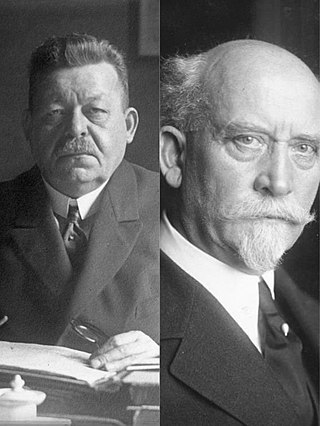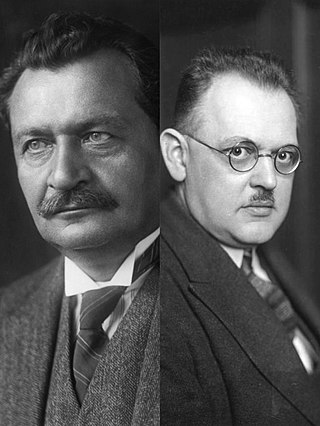 |
|---|
| Constitution |
Parliamentary elections were held in Kyrgyzstan on 5 February 1995, with a second round on 19 February. [1] The Social Democratic Party of Kyrgyzstan emerged as the largest party, with 14 of the 105 seats. [2] Voter turnout was 76%. [1]
 |
|---|
| Constitution |
Parliamentary elections were held in Kyrgyzstan on 5 February 1995, with a second round on 19 February. [1] The Social Democratic Party of Kyrgyzstan emerged as the largest party, with 14 of the 105 seats. [2] Voter turnout was 76%. [1]
| Party | Votes | % | Seats | |
|---|---|---|---|---|
| Social Democratic Party of Kyrgyzstan | 14 | |||
| Asaba | 4 | |||
| Unity Party of Kyrgyzstan | 4 | |||
| Ata Meken Socialist Party | 3 | |||
| Republican Democratic Party | 3 | |||
| Party of Communists of Kyrgyzstan | 3 | |||
| Republican People's Party of Kyrgyzstan | 3 | |||
| Agrarian Party of the Kyrgyz Republic | 1 | |||
| Agrarian Labour Party of Kyrgyzstan | 1 | |||
| Democratic Movement of Kyrgyzstan | 1 | |||
| Democratic Women's Party of Kyrgyzstan | 1 | |||
| Independents | 67 | |||
| Total | 105 | |||
| Total votes | 1,735,009 | – | ||
| Registered voters/turnout | 2,275,450 | 76.25 | ||
| Source: Nohlen et al. | ||||

The Democratic Labour Party (DLP), colloquially known as the "Dems", is a political party in Barbados, established in 1955. It was the ruling party from 15 January 2008 to 24 May 2018 but faced an electoral wipeout in the 2018 general election which left it with no MPs.

Kyrgyzstan elects on the national level a head of state – the president – and a legislature. The president is elected for a tenure of single six-year term by the people. The Supreme Council is composed of 120 members filled by proportional representation.

Federal elections were held in Germany on 19 January 1919, although members of the standing army in the east did not vote until 2 February. The elections were the first of the new Weimar Republic, which had been established after World War I and the Revolution of 1918–19, and the first with women's suffrage. The previous constituencies, which heavily overrepresented rural areas, were scrapped, and the elections held using a form of proportional representation. The voting age was also lowered from 25 to 20. Austrian citizens living in Germany were allowed to vote, with German citizens living in Austria being allowed to vote in the February 1919 Constitutional Assembly elections.

Federal elections were held in Germany on 6 June 1920. Territorial disputes meant that voting was delayed in East Prussia and Schleswig-Holstein until 20 February 1921, and until 19 November 1922 in Oppeln. The Social Democratic Party remained the largest party in the Reichstag although it lost over a third of its seats. Voter turnout was about 79.2%.

National Council elections were held in the Czech part of Czechoslovakia on 5 and 6 June 1992, alongside federal elections. The result was a victory for the Civic Democratic Party-Christian Democratic Party alliance, which won 76 of the 200 seats. Voter turnout was 85.0%. When the Czech Republic became independent in 1993, the National Council became its Parliament.

The Revolutionary Febrerista Party is a democratic socialist party of Paraguay. It was established in 1951 by Rafael Franco, President of Paraguay from the February Revolution of 1936 until his overthrow in August 1937.

Presidential elections were held in Kyrgyzstan on 29 October 2000. The result was a victory for incumbent President Askar Akayev, who was re-elected with 76% of the vote. International election monitors described the vote as failing to meet international standards. Voter turnout was 78%.

A constitutional referendum was held in Kyrgyzstan on 17 October 1998. The main provisions of the referendum were the introduction of the private ownership of land for citizens of Kyrgyzstan; a change in the distribution of seats in parliament - increasing number of seats in Legislative Assembly from 35 to 60 and reducing the number of seats in Assembly of People's Representatives from 70 to 45, removing the right of MPs to alter the national budget without the government's approval, increasing the freedom of independent media of Kyrgyzstan, and limiting the level of legal immunity awarded to MPs.

General elections were held in Jordan on 29 August 1951. As political parties were banned at the time, all candidates ran as independents, although some affiliated with the Jordanian Communist Party, the Ba'ath Party the Arab Constitutional Party and the Umma Party all won seats.

A referendum on President Askar Akayev was held in Kyrgyzstan on 30 January 1994. Voters were asked "Do you confirm that the President of Kyrgyzstan who was democratically elected on 12 October 1991 for 5 years is the President of the Kyrgyz Republic with the right to act as head of state during his term in office?" The result was 97% in favour, with turnout reported to be 96%.

A constitutional referendum was held in Kyrgyzstan on 10 February 1996. Voters were asked "Do you approve the law of the Kyrgyz Republic "On amendments and additions of the Constitution of the Kyrgyz Republic," a draft which was published in the Decree of the President of the Kyrgyz Republic on 3 January 1996?"

Presidential elections were held in Kyrgyzstan on 24 December 1995. The result was a victory for incumbent President Askar Akayev, who received 72% of the vote. Voter turnout was reported to be 86%.

Supreme Soviet elections were held in the Kirghiz SSR on 25 February 1990, with a second round on 7 April. At the time, the Communist Party of Kirghizia (PKK) was the only party in the country, with most of the candidates being from large collectives or state organisations. Nevertheless, the Party of Communists won around 90% of the seats in the Supreme Soviet, although some MPs were informally affiliated with the Democratic Movement of Kyrgyzstan.

Parliamentary elections were held in Kyrgyzstan on 20 February 2000, with a second round on 12 March. The Union of Democratic Forces, an alliance of Asaba, the Party of Economic Revival, the Social Democratic Party and the Unity Party, emerged as the largest bloc in Parliament, with 12 of the 105 seats. Voter turnout was 64%.
Dieter Nohlen is a German academic and political scientist. He currently holds the position of Emeritus Professor of Political Science in the Faculty of Economic and Social Sciences of the University of Heidelberg. An expert on electoral systems and political development, he has published several books.
Presidential elections were held in Colombia on 10 February 1914. They were the first direct presidential elections since 1860. The result was a victory for José Vicente Concha of the Conservative Party, who received 89.1% of the vote. Vicente took office on 7 August.
Presidential elections were held in Colombia on 10 February 1918. The result was a victory for Marco Fidel Suárez of the Conservative Party, who received 53% of the vote. Fidel took office on 7 August.
Presidential elections were held in Colombia in February 1922. The result was a victory for Pedro Nel Ospina of the Conservative Party, who received 62% of the vote. He took office on 7 August.
Presidential elections were held in Colombia on 9 February 1930. The result was a victory for Enrique Olaya Herrera of the Liberal Party, who received 44.9% of the vote. He took office on 7 August.
Presidential elections were held in Colombia on 11 February 1934. The result was a victory for Alfonso López Pumarejo of the Liberal Party, who received 99.6% of the vote. He took office on 7 August.